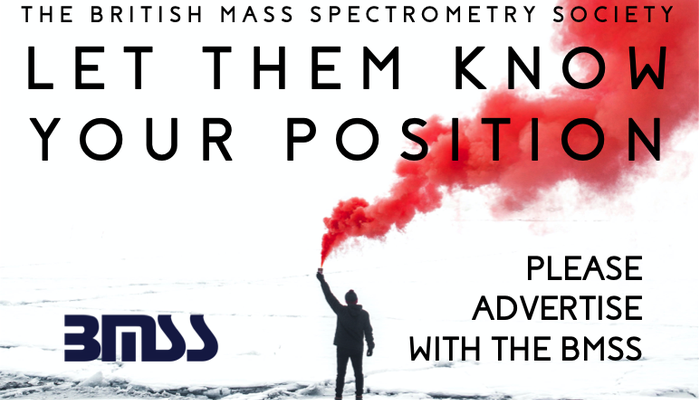Alison Ashcroft
Prof. Alison Ashcroft, University of Leeds, UK
Originally published in 2019
How did you first become interested in mass spectrometry?
I was first taught about mass spectrometry by Professor Robert Johnstone whilst an undergraduate at the University of Liverpool over 40 years ago. However, it was during my PhD at the University of Manchester when I really began to appreciate the importance and usefulness of this technique for characterising the organic molecules (and unwanted reaction products) that I was trying to synthesise. Following post-doctoral work abroad, I joined Kratos Analytical (manufacturers of mass spectrometers) who were looking for an organic chemist as they were starting to develop LC-MS technology for new chemical applications. After Kratos, I worked at Astra Zeneca and Micromass (now Waters) before setting up a biomolecular mass spectrometry facility at the University of Leeds. In my early days mass spectrometry was limited to electron impact and chemical ionisation methods and it has been amazing to see – and to be able to use - the plethora of exciting developments that have appeared over the past few decades.
What do you think are your greatest contributions in encouraging young people to pursue mass spectrometry as a career?
I’m not sure – perhaps you should ask some of the ca 40 post-graduate students and postdoctoral fellows who have been through my lab at the University of Leeds during the past 22 years! The majority seem to have remained in the mass spec field, but that could be for many reasons. For example, mass spectrometry is a fascinating and ever-developing subject, so it’s certainly challenging and never boring. Also, the close-knit community, fostered by BMSS, is very supportive and this provides insights into new research areas and encourages collaboration.
In what new areas could mass spectrometry make a significant impact - are new approaches and thinking necessary for these applications?
Currently, mass spectrometry is employed to great benefit in many areas, including pharmaceuticals, forensics, biochemicals, proteomics, petrochemicals, sports science, food safety and environmental monitoring. I’m sure these areas will continue to flourish and develop in the future. Looking further ahead, I think that mass spectrometry could be used more in space exploration, where it may be useful to employ multiple ionisation techniques, although sample processing, instrument robustness, and successful “hands-off” operation of the mass spectrometer pose issues. Another possible goal for the future would be the real-time analysis of components within intact cells. Currently, much research is focussed on individual proteins and specific biochemical systems, but so much more could be understood if whole cell analyses were possible. However, issues relating to instrument sensitivity and sample complexity may prove too challenging.
What advice would you give a scientist starting out in mass spectrometry?
Be prepared to work long hours! Seriously though… There are many pathways to starting out in mass spectrometry, ranging from choosing a period of research in an academic mass spectrometry group to reading fortuitously about a new mass spectrometry development which you think could be important for your particular area of science. Whatever your (potential) interest in mass spec, you will find support and encouragement from others in the field. In terms of using mass spectrometry, always work as accurately and optimally as you can (e.g. with respect to sample preparation, instrument optimisation, usage of standard samples to check and calibrate the equipment, and repeating key analyses). In career terms, learn as much as you can from other people but don’t be afraid of trying something new.
Where do you see the future of mass spectrometry in the next 10 years - can it still be a career path for young people?
I believe strongly that mass spectrometry is an excellent career pathway, with many opportunities for forging a long-term, interesting and rewarding career. Mass spectrometry is a wide-reaching analytical technique used in industry and academia around the world in subject areas ranging from the characterisation of crude oil samples to on-line medical applications involving the “surgical knife”. As young people can now expect to work to an ever-increasing older age, mass spectrometry offers the flexibility of moving from one analytical challenge to another, as well as moving between different places of work. I think that mass spectrometry will continue to evolve and adapt to more diverse analytical challenges, especially when considering the options for coupling to a wide range of other techniques such as chromatography, ion mobility, and even electron microscopy.
Could you describe your lasting memories/most satisfying achievements of your career in mass spectrometry?
That’s a difficult question to answer. I guess I’ve been lucky as I’ve enjoyed my career in mass spectrometry and have been fortunate to have worked with some really good people. Highlights of some of the development work in which I’ve been involved include using LC-Continuous Flow Fast Atom Bombardment to separate peptides and monitor digests in real-time during my time at Kratos; working with the ultimate mass spec expert Brian Green at Micromass/ Waters in the early days of ESI, when every protein analysis was novel; and collaborating with David Little and Kevin Giles of Waters on the use of FAIMS-MS and IMS-MS to study protein conformation. During my time at the University of Leeds I’ve collaborated with several biochemists in the fields of protein folding and function, in particular with Sheena Radford on amyloidrelated diseases and with Peter Stockley and Nicola Stonehouse on virus capsid assembly. One lasting memory I have is from the IMSC 1997 in Finland. This was during my two years as BMSS Chair, when I had the task of bidding on behalf of BMSS for the IMSC 2003; fortunately our bid for Edinburgh was successful. Finally, one sight that is always welcome is that of seeing successful PhD students coming out of their PhD vivas!

